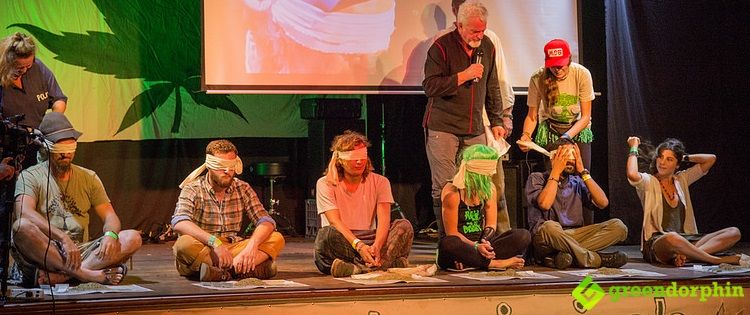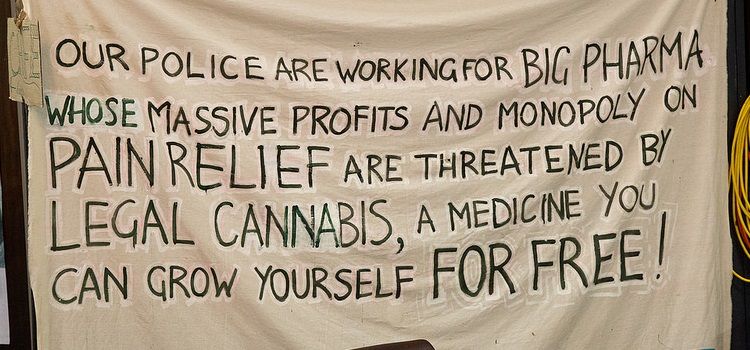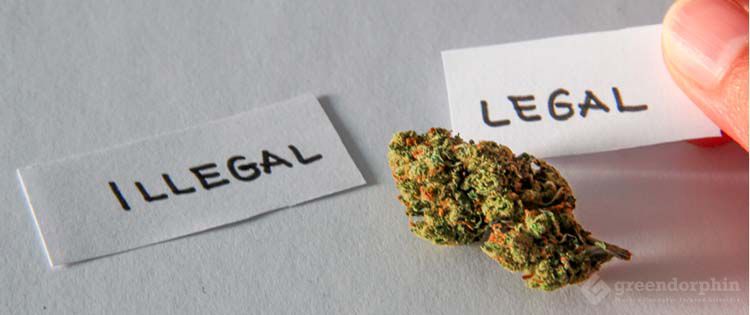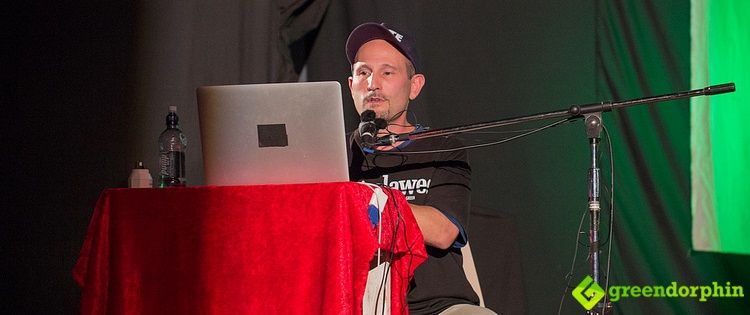Documentary movies contribute greatly to advance the cause of Cannabis around the world and to help to undo the damage inflicted by decades of propaganda, misinformation campaigns, such as the Reefer Madness in the late 1930’s.
There’s fascinating new documentary series shining a light on the cannabis prohibition around the world, called Druglawed.
I met up with South African director, Arik Reiss at the recent Nimbin MardiGrass in Australia, where he was premiering Druglawed 2.
Arik is uprooting cannabis prohibition by sharing fascinating details of the history of the failed War on Drugs.
While we did the interview with Arik, the 25th Nimbin MardiGrass was going on in the background with about 10,000 attendees, so as you can imagine, there is a fair bit of background noise. My apologies.
In case you’d rather read than watch the videos, I have inserted the transcript of the videos below for you.
I’m Arik Reiss, I’m the director of the Druglawed documentary series, which is an international documentary that looks at the war on Cannabis and the drug war in general.
And it also explains the social antecedents of the war on drugs which is based on racism and rogue capitalism, developed over many decades. And you still see these stereotypical representations of cannabis users and cannabis use in the media to this date.
Part of the reason I’m making this film is to question those discourses because cannabis users are not as they are typically portrayed in the media, to be losers and deviants and criminals.

Cannabis users are just like alcohol users. In fact, significantly less of a burden to society than the average alcohol user.
Cannabis is one of the safest intoxicants known to humankind.
As far as we know not a single human being has ever died from cannabis. There are diseases related to cannabis but they are not lethal diseases. Whereas the diseases associated with tobacco or the diseases associated with pharmaceuticals and diseases associated with alcohol are in fact deadly. And 50 times more people die of those drugs than all the illicit drugs combined every year.
So why is there a difference in this playing field? Why are some drug industries protected by governments? And they have even lobbies and some members of their corporations in government. For example, Ronald Reagan was a salesman for big tobacco companies prior to being President and his campaigns and administration took huge donations from alcohol and pharmaceutical companies.

So we’ve got a political structure that demonizes certain drugs and makes other drugs readily accessible that are actually far more dangerous than cannabis is.
So we need to reverse the stigma of cannabis use. We need to reverse the idea of the cannabis users are addicts which generally speaking they are not.
We need to also reverse the stigma placed on people who use cannabis for medicinal reasons. Some people don’t have a choice when it comes to cannabis use.
They must use it or they die. They use it or they can’t get out of bed or drive or even see in the case of Glaucoma patients.
Here in Australia they’ve introduced roadside drug tests now with people who smoke weed to be able to drive their cars – because of Glaucoma – being pulled over and tested and they lose their license as a result of their medicinal Cannabis use.
This is outrageous. You wouldn’t pull up somebody and test them for a whole range of pharmaceutical products that are far more dangerous and far more detrimental to your ability to drive the car than cannabis is.
So we need to reverse these ideas. We need a society that treats drugs fairly and on an even playing field.
As for me, I’m the director of the Druglawed documentary series and we’ve gone all over the world, to 9 different countries so far and possibly to Canada and Mexico next, to get perspectives on the War on Drugs from as many different sides as we possibly can.
So not only have we gone to all these different countries, we’ve spoken to people on both sides of the law. Both the cannabis growers and users and suppliers and the police and lawyers and the judges as well. We’ve spoken to the politicians, we’ve spoken to the doctors. We’ve tried to cover every single angle. Scientists as well, we find that science is not really part of drug policy.
In Australia, in New Zealand, in the United States, in the UK most of the drug policies are based on hysteria. They are based on misperceptions about drug users and drug use. They are based on misconceptions about addiction and the nature of addiction. We find that addiction is not necessary a pharmacological thing at all. It has a lot more to do with the connections that people have between each other.

What happened after the Vietnam war – if I can take a specific example – is that soldiers came back from Vietnam where they were using heroin every day for months while they were on their tour of duty, and they gave it up when they came back because they reconnected with their families and their communities.
That’s the nature of addiction, it’s got very little to do with a dependence on a substance and more to do with a lack of connection to other people and communities.
So in order to question these stigmas against drugs we need to build up our pro-drug policy reform communities. And I think that’s vital to show that we are unified and that we are opposing the prohibitionist matrix through our own actions, through our own communities.
Which is what Nimbin MardiGrass has done so successfully. They’ve created a community of resistance to the drug policy matrix. They’ve been here for 25 years, it is the 25th anniversary of Nimbin MardiGrass and I’m sure they are going to be here 25 years from now on. And maybe at that time, we’ll all be doing this legally.
Share your thoughts/views with our community in the comments below.
- Nimbin Medican – Educating Australians About Medical Cannabis - January 28, 2020
- Pill Testing and Roadside Drug Testing – When is it Appropriate to Test for Drugs? - August 2, 2019
- The Australian Cannabis Summit in Review - July 16, 2019


